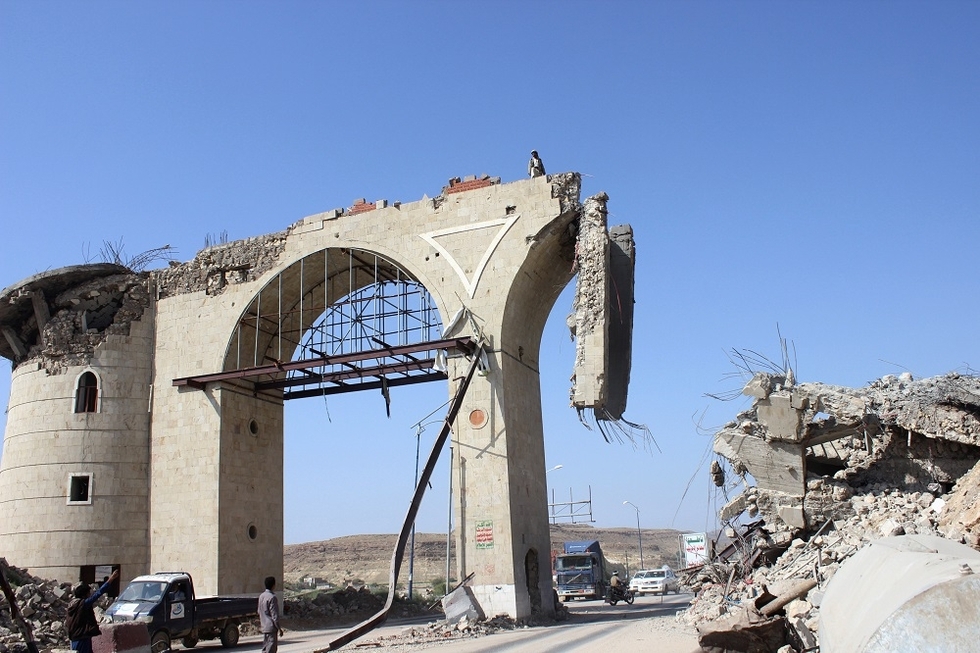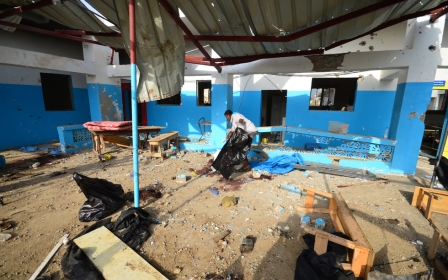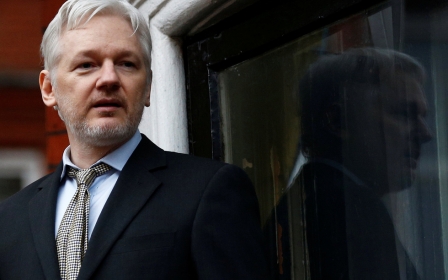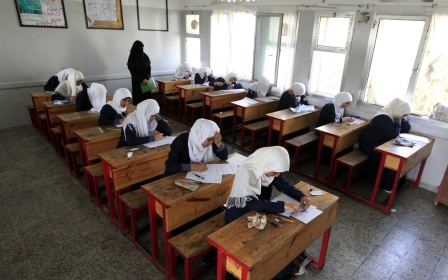UK in ‘denial and disarray’ over Saudi arms sales being used in Yemen: Oxfam

The British government is “in denial and disarray” over its arms sales to the Saudi-led coalition which are being used in the war in Yemen, Oxfam said on Tuesday.
According to the charity, the UK government has switched from being an enthusiastic backer of the international Arms Trade Treaty into one of the most significant violators.
“UK arms and military support are fuelling a brutal war in Yemen, harming the very people the Arms Trade Treaty is designed to protect,” deputy chief executive of Oxfam GB Penny Lawrence said in a statement at the second conference of states party to the treaty in Geneva.
“Schools, hospitals and homes have been bombed in contravention of the rules of war.
"The UK government is in denial and disarray over its arms sales to the Saudi-led coalition bombing campaign in Yemen.
"It has misled its own parliament about its oversight of arms sales and its international credibility is in jeopardy as it commits to action on paper but does the opposite in reality.
"How can the government insist that others abide by a treaty it helped set up if it flagrantly ignores it?”
Arms sales to the Saudi-led coalition have largely dominated the conference, with an arms watchdog on Monday urging major weapons exporters, including the United States and France, to cut sales to Saudi Arabia over its actions in Yemen.
The World Trade Organisation is hosting the second conference on the Arms Trade Treaty (ATT), which came into force in 2014 laying out new rules governing the international arms market.
By continuing to sell weapons to Saudi Arabia, which has led a 17-month-long campaign against rebels in Yemen, major weapons exporters that signed the ATT are guilty of "the worst kind of hypocrisy," said Anna Macdonald, the director of the watchdog Control Arms.
"The ATT has been in force for nearly two years but some States Parties are violating it with impunity," Macdonald said.
"Every day, we are seeing the devastating impact of the sale of arms and ammunition for use on civilians in Yemen."
Saudi Arabia has faced fierce criticism over its Yemen offensive in support of the internationally recognised government of President Abd Rabbuh Hadi.
There have been repeated strikes on civilian targets. Medical charity Doctors Without Borders has described the Saudi-led coalition bombings as "indiscriminate".
Since the Saudi-led coalition began its campaign last March, France has authorised $18bn in weapons sales to Saudi Arabi last year, the United States approved arms deals with Riyadh worth $5.9bn in 2015, while for Britain the figure was $4bn, Control Arms said in a report earlier this month.
France and Britain have ratified the ATT. The US has signed the deal, but Congress has not approved it.
Oxfam said that with more than 21.2 million people in Yemen needing some kind of humanitarian assistance, the situation there was amongst the worst in the world.
More than 6,000 people have been killed in the war according to the UN, but then 3 million people have been uprooted and over 14 million people, half the population, are suffering from hunger and malnutrition.
The UK government has faced repeated calls to ban the sale of weapons to Saudi Arabia amid concerns that international humanitarian law could be being broken in the conflict.
While all sides have been accused of repeatedly breaching international law, the UN reports that the Saudi-led coalition is responsible for twice as many civilian casualties as all other forces combined.
In July, the UK Home Office was forced into a humiliating climb-down when it had to admit that it was not able to verify claims made earlier that year that the Saudi-led coalition had not been responsible for any international law violations.
The coalition has repeatedly denied purposefully targeting civilians.
New MEE newsletter: Jerusalem Dispatch
Sign up to get the latest insights and analysis on Israel-Palestine, alongside Turkey Unpacked and other MEE newsletters
Middle East Eye delivers independent and unrivalled coverage and analysis of the Middle East, North Africa and beyond. To learn more about republishing this content and the associated fees, please fill out this form. More about MEE can be found here.




